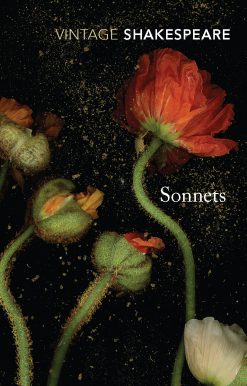Description
In this moving and playful collection, Billy Collins touches on an array of subjects—love, death, solitude, youth, and aging—delving deeper than ever before into the intricate folds of life.
Additional information
| Weight | 0.12 kg |
|---|---|
| Dimensions | 0.77 × 13.21 × 20.32 cm |
| PubliCanadation City/Country | USA |
| Author(s) | |
| Format | |
| language1 | |
| Pages | 128 |
| Publisher | |
| Year Published | 2010-2-16 |
| Imprint | |
| ISBN 10 | 0812975618 |
| About The Author | Billy Collins is the author of twelve collections of poetry including The Rain in Portugal, Aimless Love, Horoscopes for the Dead, Ballistics, The Trouble with Poetry, Nine Horses, Sailing Alone Around the Room, Questions About Angels, The Art of Drowning, and Picnic, Lightning. He is also the editor of Poetry 180: A Turning Back to Poetry, 180 More: Extraordinary Poems for Every Day, and Bright Wings: An Illustrated Anthology of Poems About Birds. A former Distinguished Professor at Lehman College of the City University of New York, Collins served as Poet Laureate of the United States from 2001 to 2003 and as New York State Poet from 2004 to 2006. In 2016 he was inducted into the American Academy of Arts and Letters. He lives in Florida with his wife Suzannah. |
“Collins reveals the unexpected within the ordinary. He peels back the surface of the humdrum to make the moment new.”–The Christian Science Monitor“Billy Collins demonstrates why he is one of our best poets, with his appealing trademark style: a self-deprecating charm, playful wit and unexpected imaginative leaps.”–San Antonio Express-News“By careful observation, Collins spins comic gold from the dross of quotidian suburban life. . . . Chipping away at the surface, he surprises you by scraping to the wood underneath, to some deeper truth.”–Entertainment Weekly“A poet of plentitude, irony, and Augustan grace.”–The New Yorker“It is difficult not to be charmed by Collins, and that in itself is a remarkable literary accomplishment.”–The New York Review of Books“Clever, subtle and engaging.”–Pittsburgh Post-Gazette |
|
| Excerpt From Book | August in Paris I have stopped here on the rue des Écoles just off the boulevard St-Germain to look over the shoulder of a man in a flannel shirt and a straw hat who has set up an easel and a canvas chair on the sidewalk in order to paint from a droll angle a side-view of the Church of Saint Thomas Aquinas. But where are you, reader, who have not paused in your walk to look over my shoulder to see what I am jotting in this notebook? Alone in this city, I sometimes wonder what you look like, if you are wearing a flannel shirt or a wraparound blue skirt held together by a pin. But every time I turn around you have fled through a crease in the air to a quiet room where the shutters are closed against the heat of the afternoon, where there is only the sound of your breathing and every so often, the turning of a page. Brightly Colored Boats Upturned on the Banks of the Charles What is there to say about them that has not been said in the title? I saw them near dawn from a glassy room on the other side of that river, which flowed from some hidden spring to the sea; but that is getting away from the brightly colored boats upturned on the banks of the Charles, the sleek racing sculls of a college crew team. They were beautiful in the clear early light— red, yellow, blue and green— is all I wanted to say about them, although for the rest of the day I pictured a lighter version of myself calling time through a little megaphone, first to the months of the year, then to the twelve apostles, all grimacing as they leaned and pulled on the long wooden oars. Searching I recall someone once admitting that all he remembered of Anna Karenina was something about a picnic basket, and now, after consuming a book devoted to the subject of Barcelona— its people, its history, its complex architecture— all I remember is the mention of an albino gorilla, the inhabitant of a park where the Citadel of the Bourbons once stood. The sheer paleness of her looms over all the notable names and dates as the evening strollers stop before her and point to show their children. These locals called her Snowflake, and here she has been mentioned again in print in the hope of keeping her pallid flame alive and helping her, despite her name, to endure in this poem where she has found another cage. Oh, Snowflake, I had no interest in the capital of Catalonia— its people, its history, its complex architecture— no, you were the reason I kept my light on late into the night turning all those pages, searching for you everywhere. |
Only logged in customers who have purchased this product may leave a review.






Reviews
There are no reviews yet.